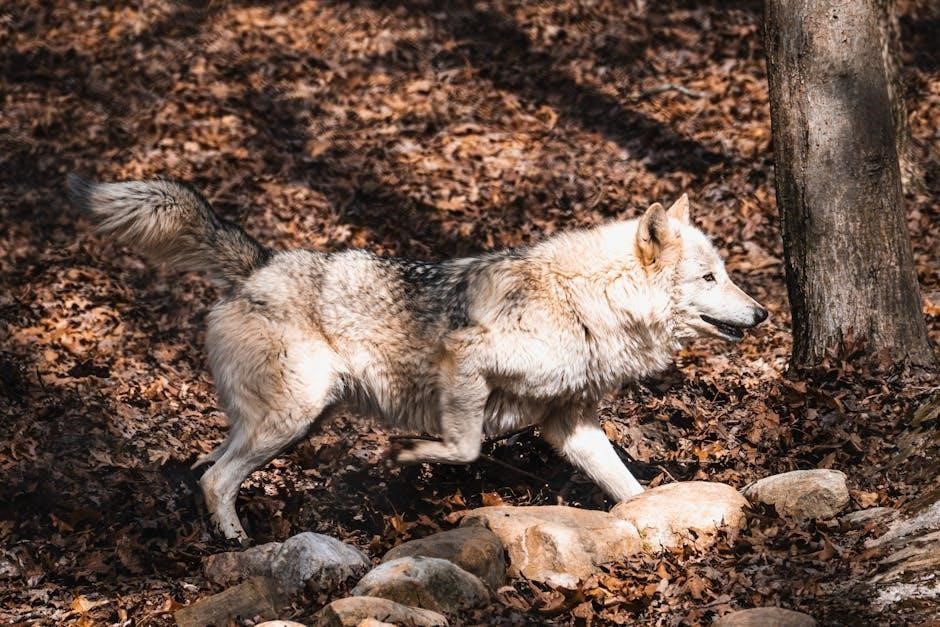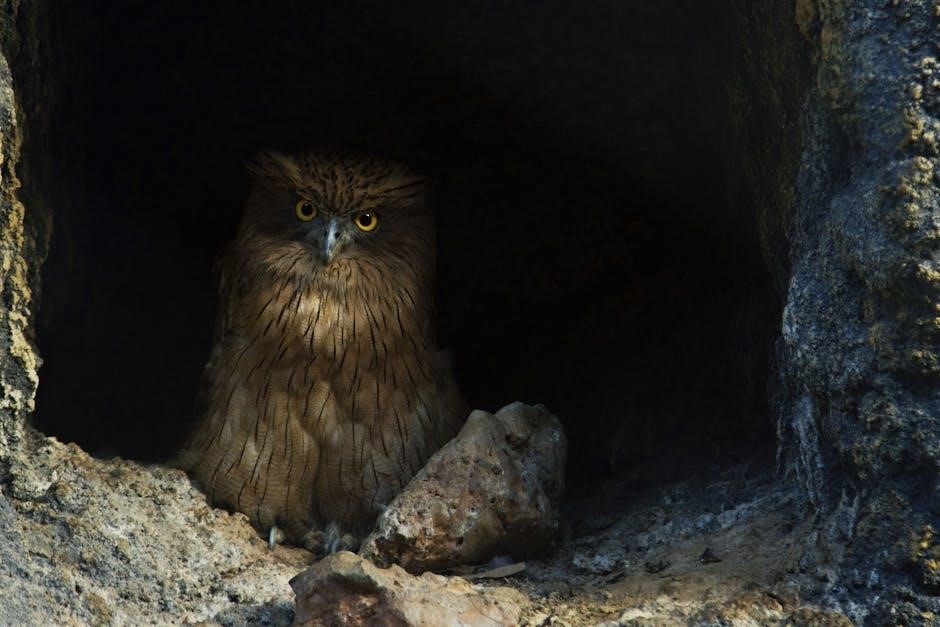Tennessee offers exceptional turkey hunting experiences, making it a top destination for hunters. Experienced guides provide expertise, ensuring successful hunts in prime locations across the state.
1.1 Overview of Turkey Hunting in Tennessee
Tennessee is renowned for its exceptional wild turkey hunting opportunities, offering a thriving population and diverse habitats. From dense forests to open fields, the state provides ideal conditions for both spring and fall seasons. Hunters can pursue the eastern wild turkey, the most common species, across public and private lands. The state’s wildlife management areas and private leases further enhance accessibility, making it a prime destination for enthusiasts. Seasonal variations and abundant wildlife ensure a dynamic and rewarding experience for hunters of all skill levels.
1.2 Importance of Guides in Successful Hunts
Experienced guides are crucial for maximizing success in Tennessee turkey hunting. They possess in-depth knowledge of local habitats, seasonal patterns, and turkey behavior, ensuring hunters are in the right place at the right time. Guides also provide expert calling techniques and strategic setups, enhancing the overall hunting experience. Their expertise significantly increases the likelihood of a successful and memorable hunt, especially for those unfamiliar with the region.

Geography and Wildlife Areas in Tennessee
Tennessee’s diverse landscape, featuring rolling hills, dense forests, and wetlands, creates ideal habitats for wild turkeys and offers abundant opportunities for hunters to explore.
2.1 Key Regions for Turkey Hunting
Tennessee’s turkey hunting hotspots include the Cumberland Plateau, Middle Tennessee, and West Tennessee. These regions offer diverse habitats, from dense woodlands to rolling hills, ideal for wild turkeys. Public and private lands provide ample opportunities, with areas like the Catoosa Wildlife Management Area and Chickasaw State Park being prime locations for hunters seeking a rewarding experience.
2.2 Wildlife Management Areas (WMAs) in Tennessee
Tennessee’s Wildlife Management Areas (WMAs) provide extensive opportunities for turkey hunting. These protected lands are managed to sustain healthy habitats for wild turkeys and other wildlife. Notable WMAs include Catoosa, Chickasaw, and Harmony Creek, offering diverse landscapes and regulated hunting access. Hunters can explore these areas, ensuring sustainable practices and memorable experiences in Tennessee’s pristine natural environments.
Regulations and Licensing
Hunting in Tennessee requires a valid hunting license and turkey permit. Ensure compliance with state regulations, bag limits, and season dates for a legal and ethical hunt.
3.1 Hunting Licenses and Permits Required
Hunters in Tennessee must obtain a valid hunting license and a turkey hunting permit. Resident and non-resident licenses are available, with specific requirements for youth and seniors. Ensure proper documentation to avoid legal issues during your hunt. Always check the latest regulations for any updates or changes to licensing requirements.
3.2 Season Dates and Bag Limits
Tennessee’s turkey hunting season typically runs from late March to early May, with specific dates varying by region. Bag limits are set to ensure sustainable populations, allowing hunters to harvest up to two male turkeys per season. Be sure to check the Tennessee Wildlife Resources Agency for the most up-to-date information on season dates and harvest limits.

Choosing the Right Guide or Outfitter
Selecting a guide with extensive local experience ensures a successful hunt. Look for reputable outfitters with proven track records, as their knowledge significantly enhances your hunting experience.
4.1 Benefits of Hiring a Professional Guide
Hiring a professional guide enhances your hunting experience by providing expert knowledge of Tennessee’s terrain, wildlife patterns, and regulations. Guides offer strategic insights, improving your chances of success. They also ensure safety and ethical hunting practices, allowing you to focus on enjoying the hunt while benefiting from their extensive experience and local expertise.
4.2 How to Select a Reputable Outfitter
Choosing a reputable outfitter involves researching their experience, reputation, and customer reviews. Ensure they are licensed and insured, with knowledge of local regulations and terrain. Ask about their success rates and hunting strategies. Verify their equipment quality and safety standards. A reliable outfitter will prioritize ethical practices and provide a positive, memorable hunting experience in Tennessee’s diverse landscapes.

Hunting Strategies and Techniques
Research the outfitter’s experience, reputation, and reviews. Ensure they are licensed and insured, with knowledge of local regulations and terrain. Inquire about success rates and strategies. Verify equipment quality and safety standards. A reliable outfitter prioritizes ethical practices and ensures a memorable hunting experience in Tennessee’s diverse landscapes.
5.1 Effective Calling Techniques for Wild Turkeys
Mastering turkey calls is crucial for attracting birds in Tennessee. Use box, slate, or mouth calls to mimic hen yelps, clucks, and purrs. Vary pitch and cadence to sound natural. Call sparingly to avoid startling birds, especially during early morning or late afternoon. Guides recommend starting with soft calls and increasing intensity as needed to engage gobblers effectively.
5.2 Decoy Placement and Setup Strategies
Strategic decoy placement is vital for luring wild turkeys. Position hen and jake decoys in open areas with clear visibility. Place decoys 20-30 yards away, slightly facing away to mimic natural foraging. Guides often recommend setting up near feeding areas or trails. Use decoys to create the illusion of a flock, enhancing the effectiveness of calls and attracting gobblers to your location.

Essential Gear for Turkey Hunting
Essential gear includes reliable firearms, high-quality optics, camouflage apparel, and effective turkey calls. Proper equipment enhances hunting success and ensures a safe, enjoyable experience in Tennessee’s wilderness.
6.1 Firearms and Optics for Turkey Hunting
Essential firearms for turkey hunting include 12-gauge shotguns with tight choke patterns. Opt for No. 4 to No. 6 shot for effective range. Pair with a quality scope or red dot sight for accuracy. These tools enhance precision and versatility, ensuring successful hunts in Tennessee’s diverse terrains and lighting conditions, making them indispensable for both novice and experienced hunters alike.
6.2 Camouflage and Apparel Recommendations
Wearing proper camouflage and hunting apparel is crucial for blending into Tennessee’s diverse landscapes. Opt for full-body suits in woodland or mossy oak patterns. Choose breathable, moisture-wicking fabrics to stay comfortable during long hunts. Add a face mask and gloves to minimize visibility. Proper gear ensures hunters remain concealed, increasing chances of a successful encounter with wild turkeys in the field.

Seasonal Variations in Hunting
Tennessee’s turkey hunting seasons vary, with spring and fall offering unique experiences. Spring hunts focus on gobblers, while fall targets flocking birds, requiring adaptable strategies and gear.
7.1 Spring vs. Fall Turkey Hunting in Tennessee
Tennessee’s spring turkey season typically runs from late March to early May, focusing on male gobblers. Fall hunting occurs from late October to early November, targeting both males and females. Spring hunts emphasize calling strategies, while fall hunting often involves scatter shooting and reassembling flocks. Seasonal tactics and gear vary, with spring being more popular due to vibrant gobbling activity and fall offering unique challenges and opportunities for harvesting birds.
7.2 Adjusting Tactics for Different Seasons
Seasonal variations require adapting hunting strategies. In spring, focus on vocalizations and decoy setups to attract males. Fall hunting demands different calls and tactics, such as scatter shooting and reassembling flocks. Hunters must adjust their timing, camouflage, and calling techniques to match turkey behavior during each season, ensuring effective and ethical hunting practices in Tennessee’s diverse habitats and conditions throughout the year.

Public vs. Private Land Hunting
Public lands in Tennessee, such as WMAs, offer accessible hunting opportunities with regulated access. Private lands provide exclusive rights but often require permission or leasing agreements.
8.1 Hunting on Public Lands in Tennessee
Tennessee offers extensive public lands for turkey hunting, including Wildlife Management Areas (WMAs) and national forests. These areas provide diverse habitats, from dense forests to open woodlands, attracting hunters statewide. Public lands are managed by the Tennessee Wildlife Resources Agency (TWRA), ensuring sustainable hunting practices. Hunters must adhere to specific regulations, including permit requirements and season dates. Public lands are popular, so planning ahead is recommended for a successful hunt.
8.2 Private Land Hunting and Leasing Options
Private land hunting in Tennessee offers exclusive access to prime turkey habitats, often with higher success rates. Many landowners lease their properties to hunters, providing controlled environments with managed game populations. Guides often partner with private landowners, offering package deals that include access, lodging, and guided hunts. Leasing options vary, from short-term rentals to seasonal agreements, catering to both individual hunters and groups. This setup ensures a more personalized and productive hunting experience.

Conservation Efforts in Tennessee
Tennessee actively promotes wildlife conservation through organizations like the NWTF, focusing on habitat restoration and education to sustain wild turkey populations for future generations.
9.1 Role of the NWTF (National Wild Turkey Federation)
The National Wild Turkey Federation (NWTF) plays a vital role in conservation efforts, focusing on habitat restoration, education, and advocacy to protect wild turkey populations. By collaborating with state agencies and landowners, the NWTF ensures sustainable habitats, promoting healthy ecosystems. Their initiatives also engage communities, fostering a culture of wildlife stewardship and ensuring the future of turkey hunting in Tennessee.
9.2 Habitat Management for Wild Turkeys
Habitat management is crucial for sustaining wild turkey populations in Tennessee. Practices like forest thinning, prescribed burns, and creating edge habitats enhance nesting and foraging areas. Conservation efforts focus on maintaining diverse landscapes, ensuring turkeys have access to food, shelter, and breeding grounds. These strategies not only support turkey populations but also benefit other wildlife, making Tennessee a prime destination for hunters and outdoor enthusiasts alike.
Safety and Ethics in Turkey Hunting
Safety and ethics are paramount in turkey hunting. Hunters must wear blaze orange for visibility and adhere to fair chase practices, ensuring humane and clean kills.
10.1 Safety Practices in the Field
Always wear blaze orange for visibility and use tree hooks for firearms in elevated stands. Ensure weapons are unloaded during transport and movement. Be aware of surroundings and communicate clearly with hunting partners. Respect private property and wildlife habitats to maintain a safe and ethical hunting environment.
10.2 Ethical Considerations for Hunters
Ethical hunting practices are essential for sustainable wildlife management. Hunters must respect landowners, wildlife, and fellow hunters. Ensure a clean, quick kill to minimize animal suffering. Avoid overhunting and never harvest more than allowed by law. Respect public and private lands, leaving the environment undamaged. Ethical behavior fosters a positive hunting culture and preserves opportunities for future generations.

Tips for Beginners
Start with proper gear, practice calling, and learn turkey behavior. Scout locations beforehand and consider hiring a guide for guidance. Patience and persistence are key.
11.1 Preparing for Your First Turkey Hunt
Research local regulations, obtain necessary permits, and familiarize yourself with turkey behavior. Invest in essential gear like camouflage, a good pair of binoculars, and a reliable call. Practice your shooting skills and understand the basics of turkey habitat and patterns. Consider hiring a guide to gain insights and improve your chances of success during your first hunt.
11.2 Common Mistakes to Avoid
Overcalling and poor timing are frequent errors. Moving too quickly and ignoring camouflage can spook birds. Not respecting private property boundaries and failing to follow regulations are costly mistakes. Arriving unprepared for variable weather and neglecting to scout locations beforehand also reduce success rates. Avoid these pitfalls to enhance your hunting experience in Tennessee.
Tennessee offers unparalleled turkey hunting experiences. With expert guides, diverse habitats, and rich traditions, hunters are encouraged to explore the state’s abundant opportunities for a memorable adventure.
12.1 Summarizing the Key Points
Tennessee turkey hunting guides offer expert knowledge and access to prime locations, ensuring memorable hunts. Key points include understanding regulations, effective strategies, essential gear, and safety practices. Guides enhance success, whether on public or private lands, while conservation efforts and ethical hunting practices are emphasized. Beginners benefit from professional guidance, making Tennessee a top destination for both experienced and novice hunters seeking a rewarding experience.
12.2 Encouragement to Explore Tennessee’s Hunting Opportunities
Tennessee’s diverse landscapes and abundant wildlife make it a paradise for turkey hunters. With expert guides offering insights and strategies, hunters can maximize their success. The state’s commitment to conservation ensures sustainable hunting opportunities. Whether you’re a seasoned hunter or a novice, Tennessee’s vibrant outdoors invites you to explore its rich hunting heritage and create lasting memories.
